MLweb:
Machine Learning on the Web
For anyone, anywhere.
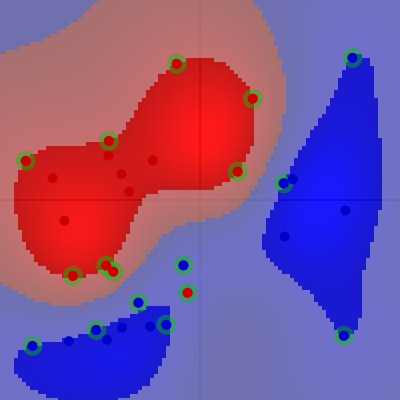
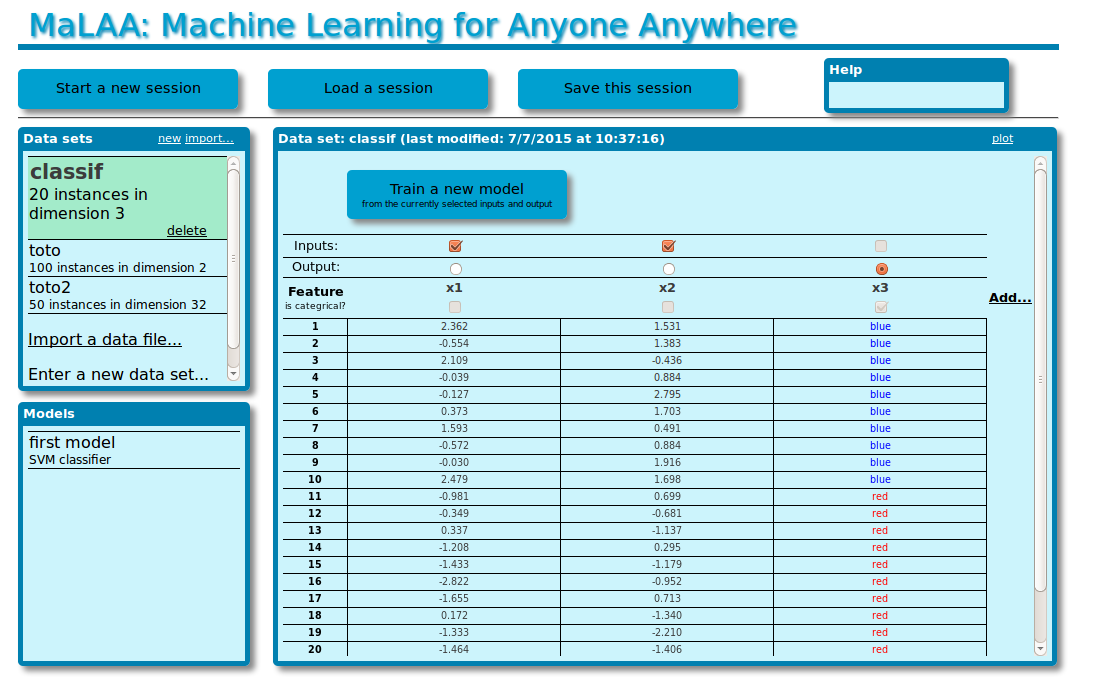
Machine Learning for Anyone Anywhere
MaLAA is a simple web application built with MLweb and aimed at providing anyone with access to state-of-the-art machine learning tools for performing prediction tasks in a fully automated manner.
No need to be an expert of machine learning or computer science. Simply upload your data and ask for predictions. Privacy is warranted: nothing leaves your computer.
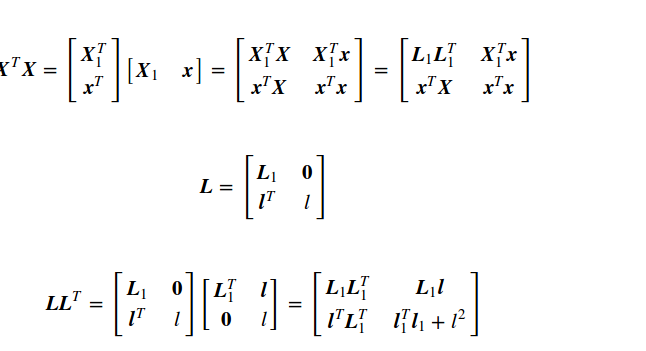
X = rand(60,30);
singularvalues = svd(X);
KyFan3 = sum(get(singularvalues, range(3)));
A = randn(1000,100);
x = randn(100);
y = add( mul(A,x), mul(0.01, randn(1000)) );
xhat = solve(A, y);
Scientific computing in web pages made easy
LALOLib (Linear ALgebra Online Library) is a library that enables and ease scientific computing in web pages or applications. It includes functions for basic linear algebra, statistics and optimization, all easily loaded with a simple line of HTML:
<script src="http://mlweb.loria.fr/lalolib.js"></script>
Nothing to run on the server-side, nothing to setup on the client-side. Just plain javascript computations that work out of the box.
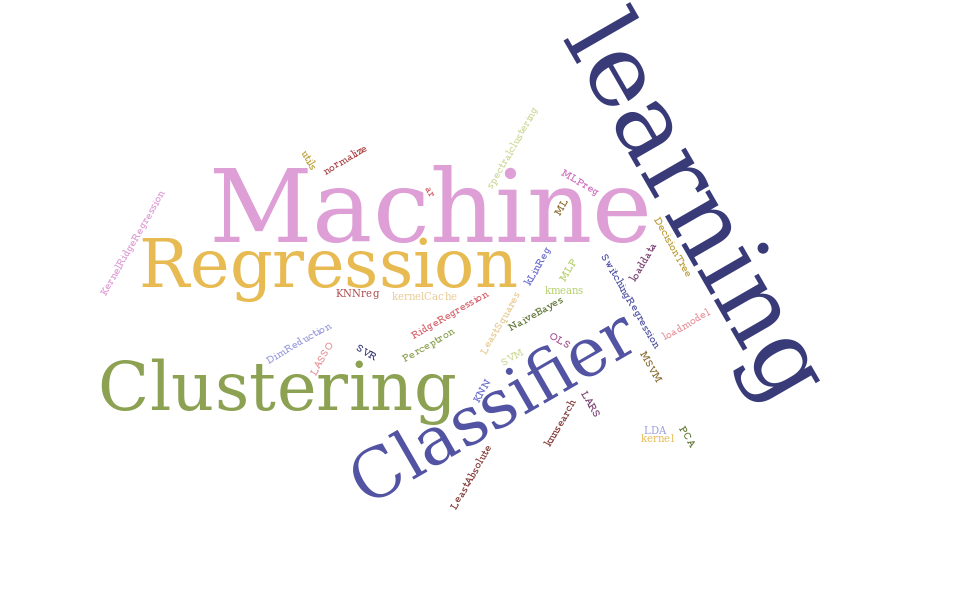
svm = new Classifier(SVM, {kernel: "rbf"});
trainingError = svm.train(X,Y);
labels = svm.predict(Xtest);
model = new Regression(RidgeRegression, {lambda: 0.1});
mse = model.train(X,y);
yhat = model.predict( x );
Extending web applications with machine learning capabilities
ML.js extends LALOLib with easy-to-use functions implementing the state of the art in machine learning for classification, regression and clustering.
With ML.js, a web page can for instance train a support vector machine on the fly and deliver predictions in complete privacy without communicating with a distant server.
Load ML.js with the HTML line <script src="http://mlweb.loria.fr/ml.js"></script>
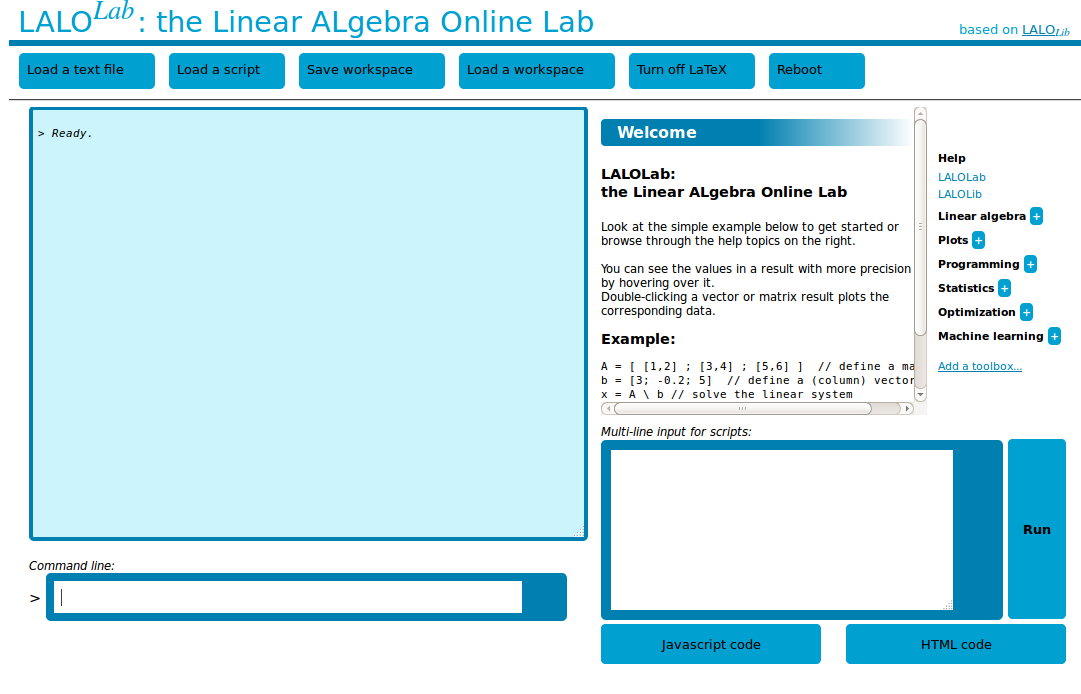
A = [ [1,2] ; [3,4] ; [5,6] ] // define a matrix
b = [3; -0.2; 5] // define a (column) vector
x = A \ b // solve the linear system
plot( A*x - b ) // plot the error
An online laboratory for scientific computations
LALOLab is an online numerical computing environment is the flavor of Matlab that offers a high-level language to ease the development of scientific and machine learning web applications based on LALOLib and ML.js.
LALOLab comes with an online help of LALOLib and ML.js functions including many examples and can easily be extended with more toolboxes.
MLweb is still under development and is provided without warranty.
Download the ready-to-use library and start using MLweb in your web pages. See the documentation for alternative downloads.
MLweb is an open-source project, which can be downloaded, shared and modified, according to the GPL. See also MLweb on MLOSS.org and GitHub for the latest updates.
Learn more about machine learning and the scientific foundations of MLweb in the webbook An interactive journey into machine learning.
LALOLib and MLweb were designed to maximize efficiency. Yet, machine learning computations can take a lot of time. In such cases, responsiveness can be maintained by using the libraries in asynchronous mode, as explained here.
With MLweb, all computations are performed on the client side: the data never travels across the internet and never gets stored on a server.
MLweb can be easily extended with new machine learning functions or other toolboxes. Learn how to do this here.
MLweb is an open-source project conducted by F. Lauer at the LORIA, and funded by the University of Lorraine, France.
If you use MLweb in research work, please cite the following paper:
F. Lauer. MLweb: a toolkit for machine learning on the web. Neurocomputing, 282:74-77, 2018.